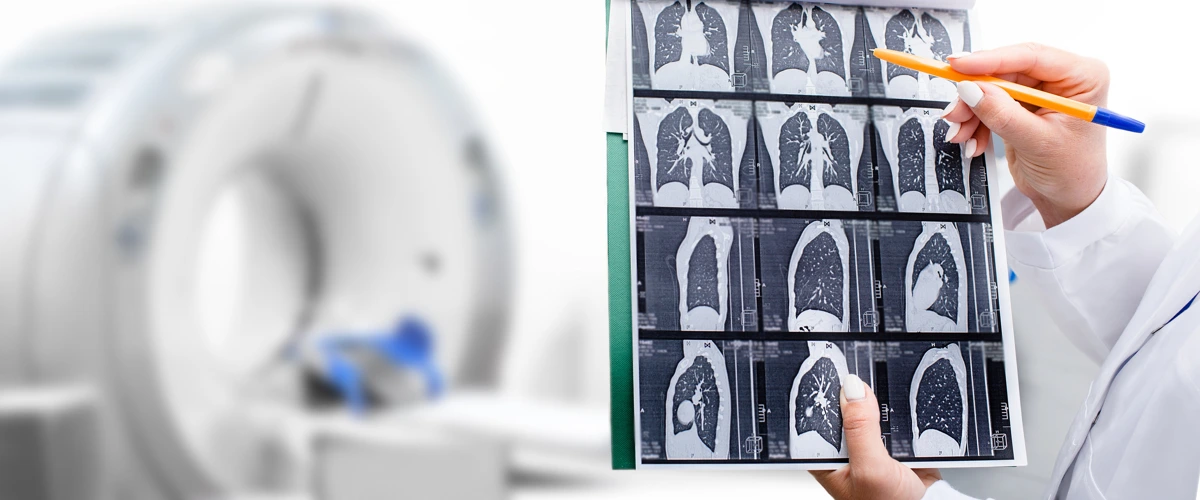
Lung Cancer: A Growing Concern in Singapore
Lung cancer remains the
leading cause of cancer-related deaths in Singapore, surpassing even
colorectal cancer, the most commonly diagnosed cancer.
According to the Singapore Cancer Registry, approximately 100 people die from lung cancer each month. This is higher than the
roughly 74 monthly deaths from colorectal cancer, the second deadliest
cancer.
While colorectal cancer has more new cases (about 204 per month compared to 149 for lung cancer), the mortality rate from lung cancer is
higher. This underscores the importance of improved lung cancer screening, particularly for individuals at higher risk.
Late Diagnosis: A Challenge in Lung Cancer Treatment
A critical hurdle in lung cancer management is its late diagnosis. In Singapore, about 75% of lung cancer cases are detected at advanced stages (stages 3 or 4), significantly diminishing the chances of successful treatment. The absence of symptoms in early stages further complicates timely detection, making early diagnosis a rare occurrence.
The Case for Expanded Screening: Insights From Singaporean Experts
Professor Lee Pyng from the National University Hospital (NUH) is leading a change in how we approach lung cancer screening. Right now, screening mainly targets long-term heavy smokers, but Prof. Lee suggests we should expand it to include more people. This idea is backed by research from the National Cancer Centre Singapore (NCCS), which shows that almost half of lung cancer patients in Singapore are non-smokers.
Low-Dose Computed Tomography (LDCT): A Game-Changer in Early Detection
The introduction of low-dose computed tomography (LDCT) scans marks a significant advancement in lung cancer screening. Unlike traditional X-rays, LDCT is sensitive enough to detect early-stage cancers and uses a fraction of the radiation of standard CT scans.
Family History and Lung Cancer Risk
A key factor in assessing lung cancer risk is family history. Dr. Gillianne Lai of
the National Cancer Centre Singapore (NCCS) underscores this point by citing a
comprehensive Taiwanese study. This study provides evidence of the efficacy of
screening among individuals with a family history of lung cancer.
The findings from Taiwan are particularly striking: out of 49,508 participants
screened for lung cancer, 531 cases were detected, translating to a detection
rate of 1.1%. More significantly, 85.1% of these cases were
diagnosed at very early stages of the disease. These statistics
highlight the crucial role of early detection in improving the prognosis of
lung cancer patients.
Who Should Consider Lung Cancer Screening?
Early detection of lung cancer can significantly improve treatment outcomes. Given the recent findings and expert recommendations in Singapore, the following groups of people should consider undergoing lung cancer screening:
- Long-time Heavy Smokers: Traditionally, heavy smokers have been the primary focus of lung cancer screenings due to their high risk.
- Non-smokers With a Family History of Lung Cancer: As emerging studies suggest, non-smokers with a family history of lung cancer are also at a considerable risk.
- Individuals Exposed to Second-Hand Smoke: Regular exposure to second-hand smoke is another significant risk factor.
- People With Occupational or Environmental Exposure: Those exposed to certain substances like asbestos, radon, and other carcinogens in their work or living environments should also consider screening.
- Age Factor: Older adults, typically those above the age of 55, are more likely to develop lung cancer, thus screening is often recommended for this age group.
- Individuals With Chronic Respiratory Conditions: Those with a history of chronic respiratory diseases may also be at higher risk.
- Lifestyle Factors: Diet, exercise, and overall health can also influence the risk of lung cancer.
This list is not exhaustive, and it's important for individuals to consult a doctor to better understand their specific risk factors and screening needs.
Lung Cancer Screening in Singapore Cost
| Treatment | Price* |
|---|---|
| Consultation | From $49.05 |
| CT Low Dose Lung | $436 |
^Prices last updated on Jan 28, 2026. While every effort is made to keep pricing information up to date, please contact our team to confirm the latest rates.
If you are keen to understand more, please talk to our friendly staff or doctor today.
Where Can I Do Lung Cancer Screening in Singapore?
ATA Medical is conveniently located at two different locations:
- Tanjong Pagar Medical Clinic (Closest MRT: Tanjong Pagar EW15)
- Orchard Clinic (Closest MRT: Orchard Boulevard TE13)
Our Orchard clinic has a one-stop computed tomography (CT) scan facility.
Citations and Statistics were derived from:
https://www.straitstimes.com/singapore/lung-cancer-screening-should-be-extended-to-non-smokers-expert

